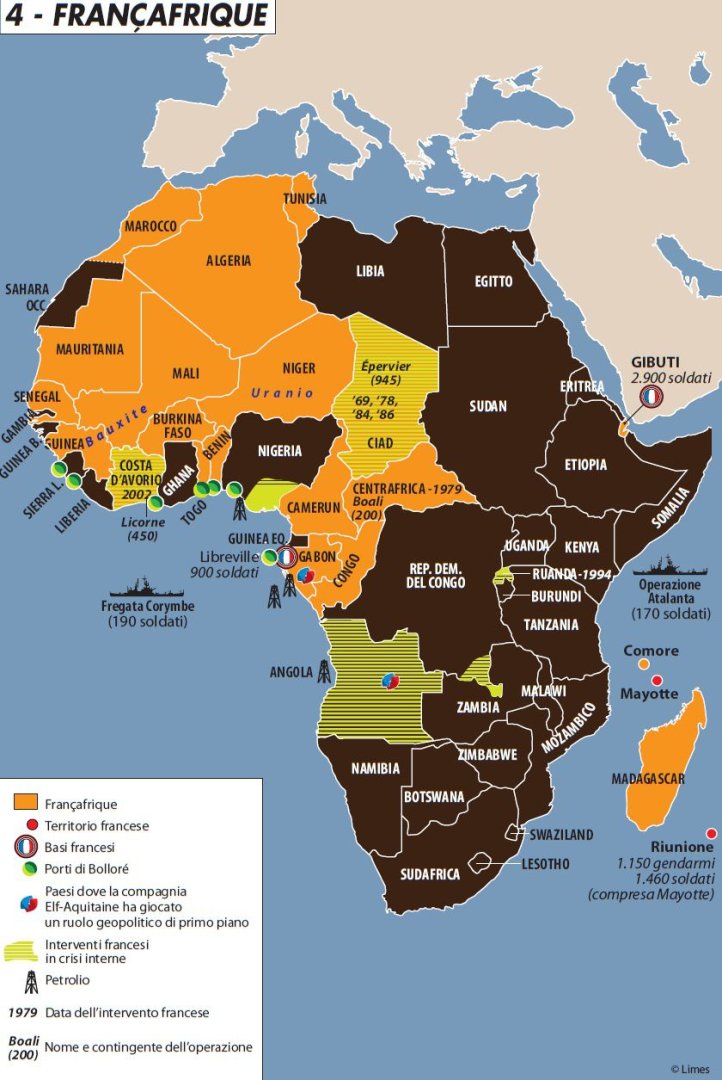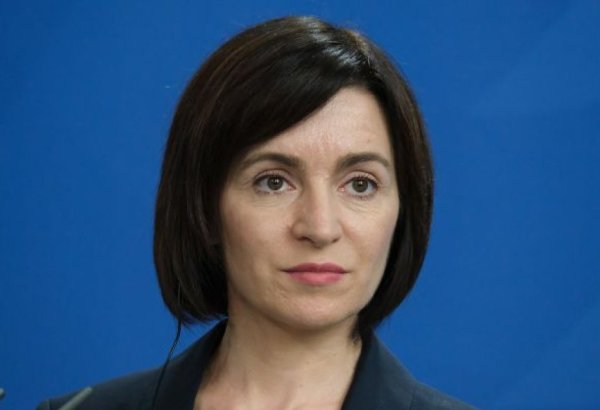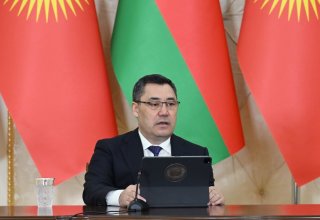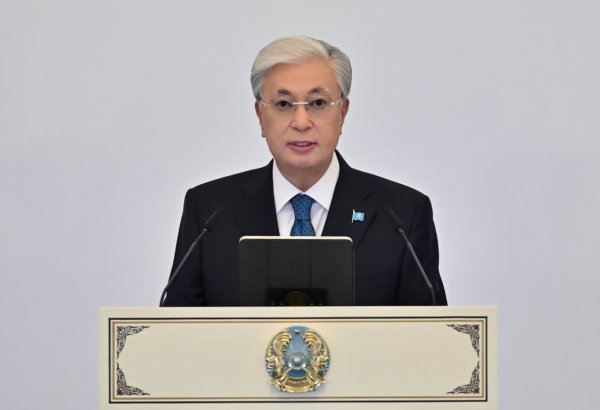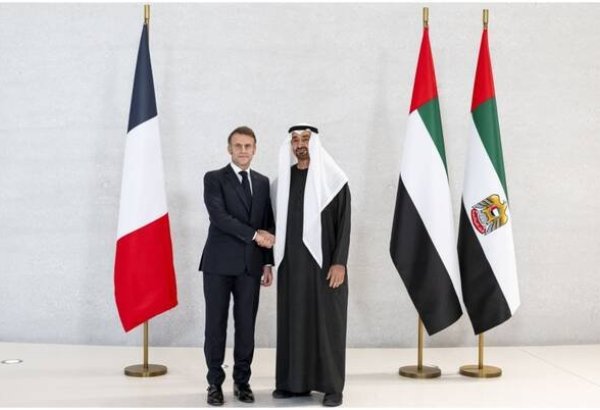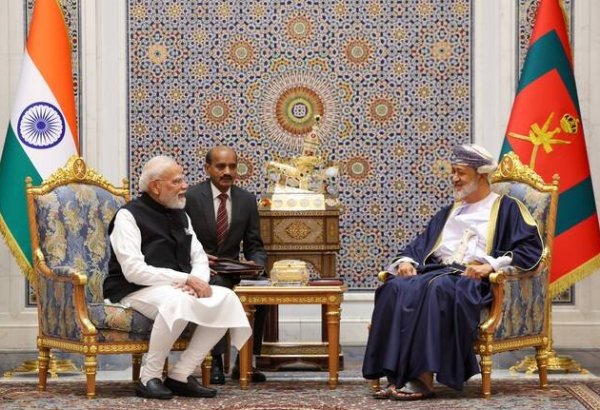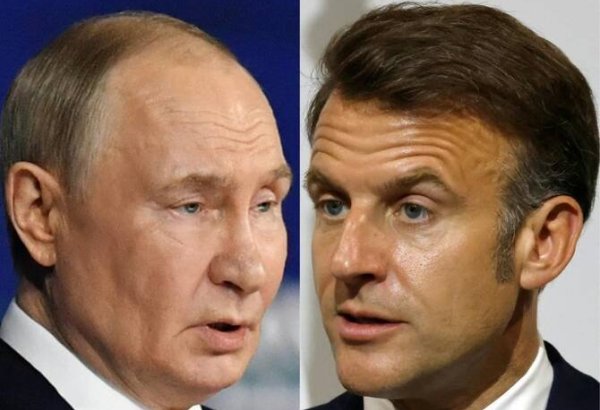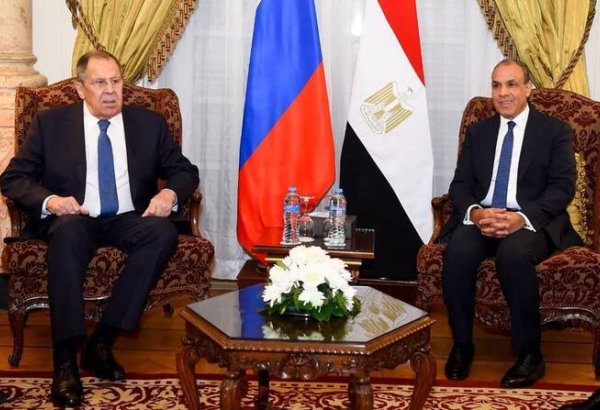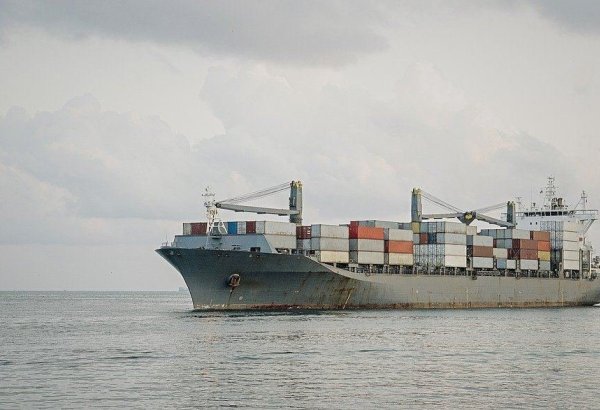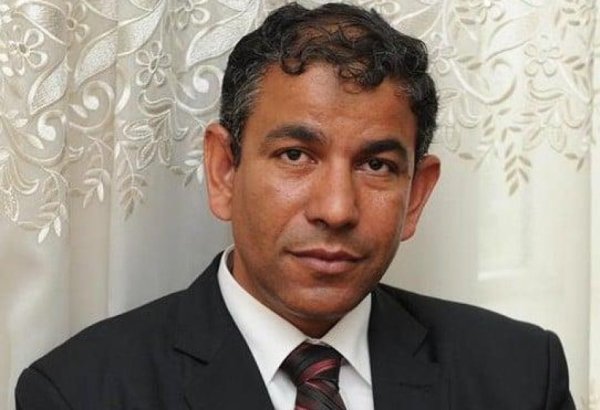France is gradually losing its influence on the African continent and conforming to the post-colonial paradigm of development, displaying opposition to the current circumstances.
Today, France's policy on the African continent is defined by its ambition to maintain influence in Africa through a variety of means.
Nonetheless, inhabitants in France are wary of President Emmanuel Macron's African agenda. According to a poll conducted by the French newspaper Le Figaro, the majority of French residents (62 percent) are pessimistic about the future of relations between their country and African countries, with 60 percent doubting President Emmanuel Macron's ability to forge "new balanced ties" with the African continent.
Commenting on the reasons for the dislike of France expressed in some African countries, the French put France's colonial past at the top of the list, ahead of other possible reasons (56 percent). In the same context, 61 percent of the French approve of Emmanuel Macron's announced gradual withdrawal from Africa, believing that France should abandon its military presence in the region according to the wishes of Africans.
Only 36 percent of them believe that Paris should maintain its military presence in Africa, although it should be noted that supporters of the head of state express the opposite opinion.
It is arguable that the prioritization of French presence in the region over economic issues is linked to Emmanuel Macron's goals amidst the open promotion of countries such as Russia, China, Türkiye and the United States. On social networks, it was noticed that Macron's visit to Africa in March this year was most often denounced by Internet users, emphasizes the CEO of Backbone Consulting, which conducted the survey.
According to the head of the company, Africans express the desire for independence and believe that the system of "Françafrique" still exists with the support of certain leaders and military presence in the region, especially in the Sahel. Thus, France's role in Africa is still poorly perceived by the local population, and the French president will have to overcome this dislike.
Will Macron accept the end of the "Françafrique" era?
During his tour to African countries, Macron declared the end of the "Françafrique" era, referring to France's post-colonization strategy of supporting authoritarian leaders to protect its interests.
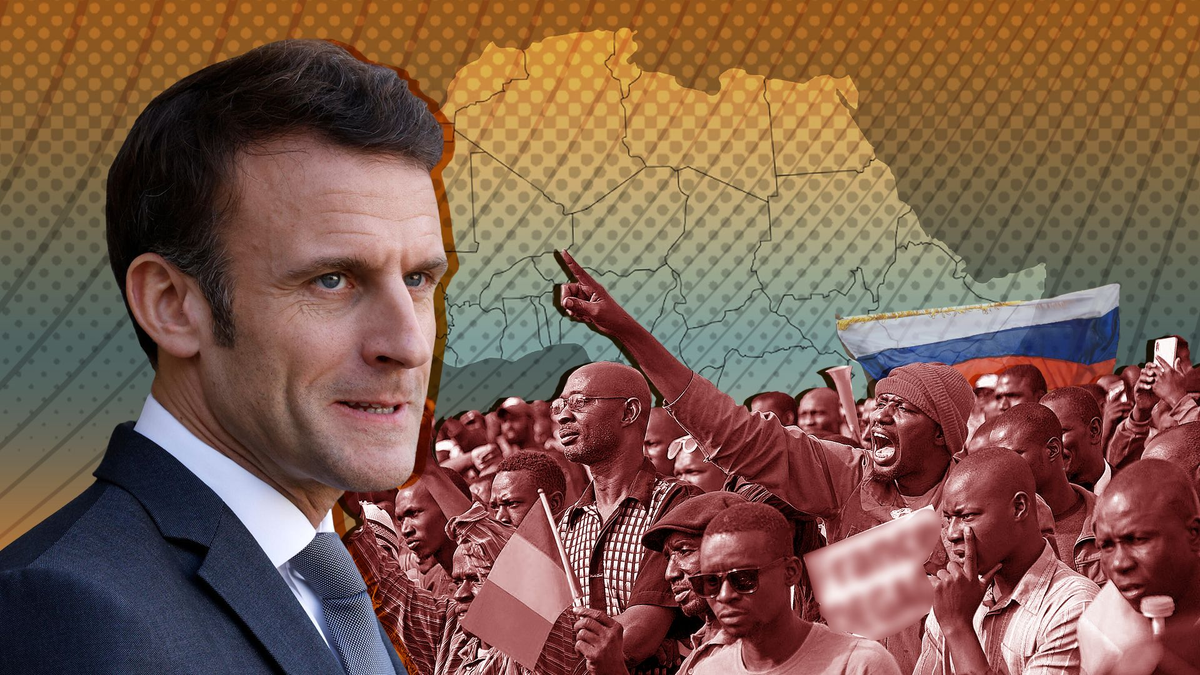
And although local hostility toward France has increased significantly in some former African colonies, the African continent has become a new diplomatic battleground where the influence of Russia and China has increased significantly, effectively giving France an incentive to take steps to preserve the colonial model in the region.
However, according to Macron, France has no desire to return to its previous policy of interfering in Africa. These words were spoken before a summit on the environment in Gabon, which was the first stage of his African tour.
Back in late April this year, Macron said that "in the coming months" there will be a "marked reduction" of the presence of French troops in Africa and greater emphasis will be placed on training and equipping the forces of allied countries. In early March, however, the president insisted that the planned policy realignment did not represent "neither a withdrawal of troops nor their release," defining it as an adaptation to the needs of its partners.
Macron linked the reorganization in the region to the fight against maritime piracy, illegal gold mining, and environmental crimes, as well as the regional drug trade.
France's economic and political approach to maintaining its relevance in Africa
Returning to the diplomatic struggle between countries to extend their influence on the African continent, it is worth noting that France has its own set of strategic points in each sub-region: Morocco, Tunisia, and Egypt in North Africa; Cameroon, the Central African Republic, the Democratic Republic of the Congo, and Gabon in Central Africa; South Africa and Angola in Southern Africa; and Nigeria and Côte d'Ivoire in the Gulf of Guinea region. This is because a third of all French visas are issued to people from North Africa; 46 percent of migrants arriving in France from the continent are from its northern part, supported by 83.4 percent of all flights from
France relative to the whole of Africa. The presence of French business is also strong, with 16 billion euros of French direct investment accumulated in North Africa.
France has thus prioritized the continent in accordance with its objectives, taking into account the economic, politico-military, and cultural importance of the region, ensuring the socio-economic integration of the population, combating climate change, strengthening states and civil societies, developing human capital and promoting economic diversification, preserving the French language and its currency, implementing training and technical support projects, and managing migration issues.
Africa's resources as the main reason for France's cooperation
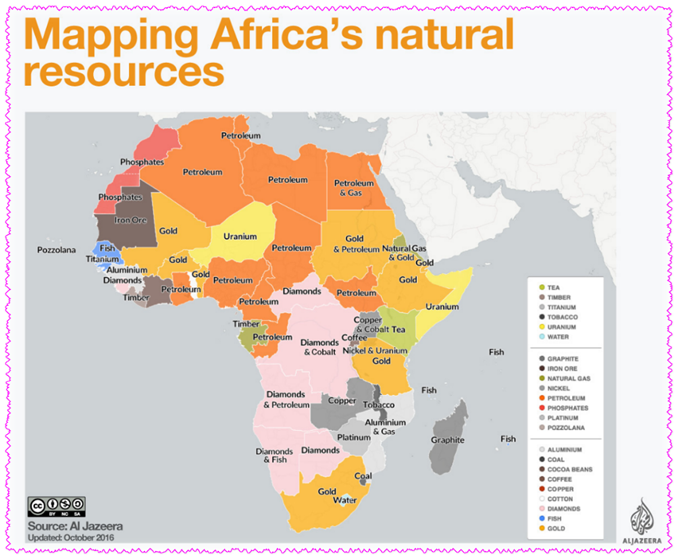
The capital of Niger appears to be a strategically important point for the Paris economy.
Nuclear power in France, which is directly dependent on African resources, is the major source of electricity production and consumption throughout the country, with 56 reactors spread around the country.
Thus, the French state owns 45 percent of the international corporation Orano, which imports natural uranium from Niger, which is required for the functioning of nuclear power plants in France.
It is worth noting that Niger provided 25 percent of the European Union's needs for uranium raw materials in 2022. Moreover, the French company EDF imports about 7,000 tons of uranium annually, which accounts for almost 10 percent of global demand.
And Nigerian uranium imports cover between 10 and 15 percent of France's needs. Despite the coup d'état in Niger against President Mohamed Bazoum to overthrow France's long neocolonial presence in July 2023, French nuclear power plants have been protected from the effects of the security situation in the country.
Orano Company, which mines uranium in the Nigerian region, reported that it would continue its operations at its headquarters in Niger and other African cities. As a result, at the request of the country's authorities, the process of withdrawing French troops from Niger began in early October this year. It is obvious that the countries of the former Francophone system will continue to support the new established political order, which France will have to reconcile with.
France is trying to maintain the status quo in Africa.
Back in 2019, Macron mentioned that "France contains a piece of Africa", which still effectively defines his policy towards Africa, despite his recent statements about the end of the "Françafrique" era.
It is its presence in Africa that makes France a world power, given that Africa accounts for 70 percent of France's military cooperation abroad, its economy is mainly derived from African natural resources, and French-speaking countries account for 16.5 percent of the world's gross income.
According to the Organisation internationale de la Francophonie (OIF), the number of francophones in Africa may exceed the number of francophones in Europe by two times, and by 2070, about 80 percent of francophones will be Africans (while among anglophones, the share of Africans will be about 40 percent). The importance of the African diaspora in France, which is the largest diaspora in Europe, should not be underestimated.
The French Development Agency (Agence Française de Développement) estimates the number of African nationals living in France at 2.9 million. Another 3 million African nationals have obtained French citizenship. It is no secret that the African population is becoming an important factor not only in France's foreign policy but also in its domestic policy.
It is also worth taking into account the fact that the French monetary unit (CFA franc, or African franc) functions in the former colonies and forms the currency system of 14 African countries that are part of the "franc zone". Taking into account these and other reasons, it can be assumed that France not only pursues its own goals in Africa but may also be interested in limiting its development since a weakened and unstable Africa is more suitable for the role of a source of natural and financial resources necessary for the world economy.
Thus, it was the political instability and weakness of the African government that caused this long-standing outflow of rich resources and capital from Africa to Europe, which prompted the African military junta to launch a coup d'état and reorganize its government against the fallout of its colonial past, something to which France will have to adapt in time.
The "modified" role of France's military presence on the African continent
Although it is obvious that the realignment process is quite painful for France, during his March tour in African countries, Macron expressed his intention to reshape the format of France's military presence on the continent, seeking to retain its influence on foreign territory in every possible way.
It can be argued that the French troops will remain unremoved from African countries because France currently has a number of strongholds and seeks to change the format of its military presence in the region.
The strongholds are located along the coast of the Gulf of Guinea (Senegal, Côte d'Ivoire, Gabon), in the Bab-el-Mandeb Strait (Djibouti), and partly in the Sahel (Niger, Chad). Now they will serve as a kind of training center ("security hub") together with the local armed forces.
Thus, Macron himself has repeatedly asserted that the French troops themselves do not leave their places of deployment, focusing on the tasks assigned to them by the French government. According to the French authorities, such a military stay will not cause international controversy and will be coordinated with the consent of the host countries, and the very presence of military bases, according to Macron, will not give France special rights to interfere in internal African affairs.
It turns out that France's military presence on the territory of African countries—in fact, foreign countries—plays a different important role, and for the same reason, the government remains hesitant to release its troops. To summarize, even if France decided to leave Africa today, it will be a long process given its unparalleled reliance on the continent and its acceptance of former colonies as real actors in international relations today appears almost unthinkable.
